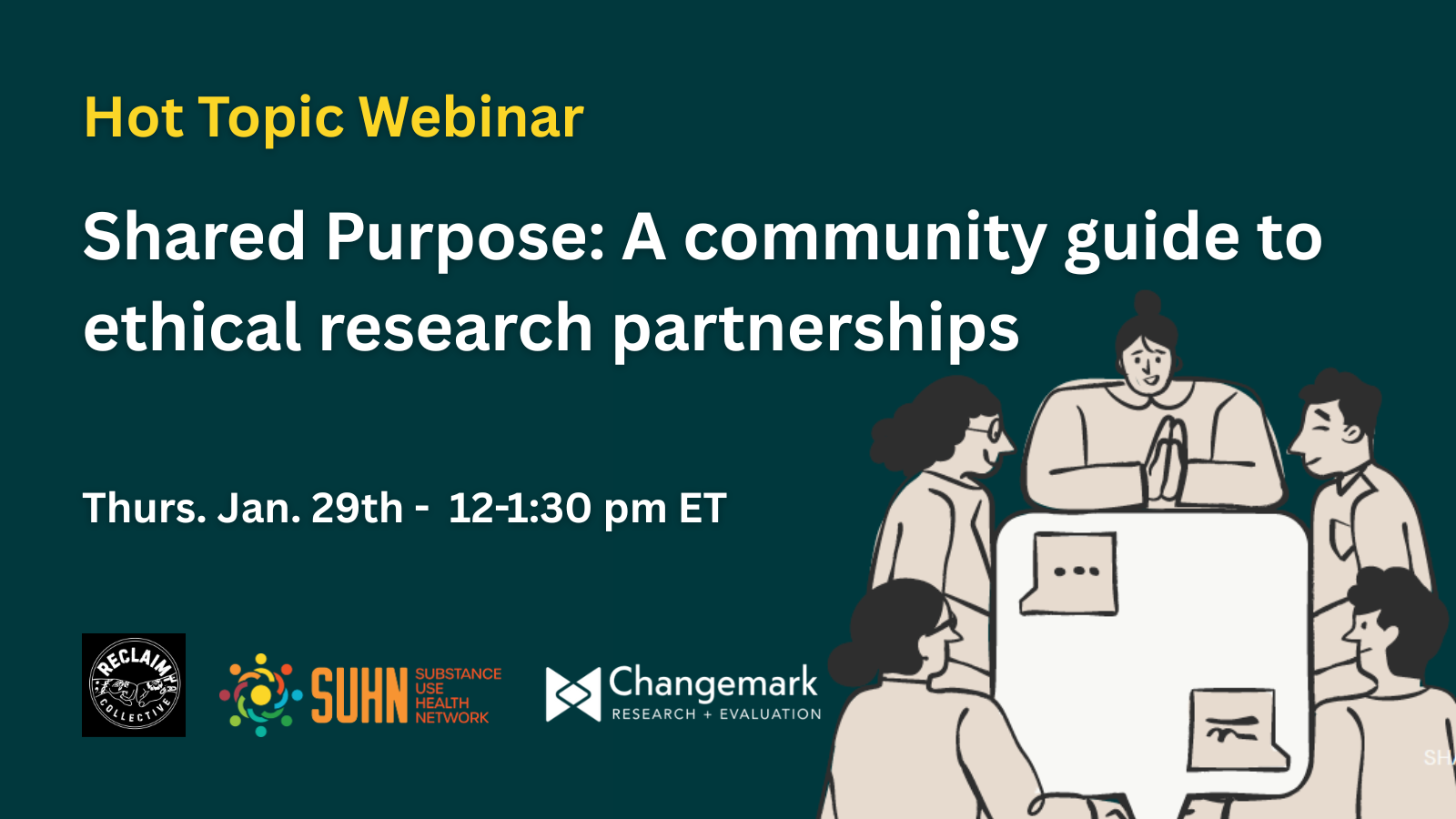
About
Join us for a practical webinar introducing Shared Purpose, a community-informed guide designed to support more ethical, respectful, and mutually beneficial research partnerships. The guide draws on real-world experience to address challenges communities often face in research, such as extractive practices, misaligned priorities, and limited benefit sharing.
During the session, you’ll learn why Shared Purpose was created, what it includes, and how it can be used throughout the full research process, from early relationship-building to data use and sharing results. The presentation will highlight core principles including respect, reciprocity, relational accountability, and relevance. It will also walk through the guide’s seven chapters and the concrete tools communities and partners can use to assess fit, ask critical questions and set clear expectations.
This webinar is well suited for community organizations, researchers, and partners who are interested in or striving towards research relationships that are grounded in trust and aligned with community priorities. To help make the session as useful and relevant as possible, we encourage you to read the guide in advance and come with questions.
Shared Purpose: a community guide to ethical research partnerships was produced by Changemark Research and Evaluation.
When:
Thursday, January 29th, 2026 - 12-1:30 pm ET (9 am PT, 10 am MT, 11 am CT, 1 pm AT, 1:30 NL)
This webinar is co-hosted by SUHN, Reclaim Collective, and Changemark Research and Evaluation.
Research Spotlight Webinar
"It helps me do things that are meaningful to me ... like my work" Prescribed Alternatives for Harm Reduction Workers
When
Thursday February 26, 2026 - 9 am PT / 10 am MT / 11 am CT / 12 pm ET / 1 pm AT / 1:30 NL
About
Our February webinar turns the spotlight on the experiences of harm reduction workers in Victoria BC who participate in AVI's Prescribed Alternatives (PA) Workforce program. The Workforce Program provides access to PA (e.g., various formulations of prescribed fentanyl, opioid agonist treatment) to individuals employed in harm reduction roles. An interdisciplinary healthcare team provides wrap-around psychosocial support to participants. AVI’s PA service model is guided by principles of health equity and builds on flexible clinical protocols developed to maximize safety, privacy and dignity for participants. In March-April 2025, surveys and interviews were conducted with participants and staff to valuate early outcomes of the new Workforce cohort and learn more about what HRWs experience as participants of the PA program. This webinar will share evaluation findings of the Workforce Program, including participant outcomes and experiences, as well as recommendations.
Speakers
Laura Cartwright and Emily Clayton, AVI KTE Team
More event listings coming soon!
Recordings of past Hot Topic webinars and past Research Spotlight webinars are available.





